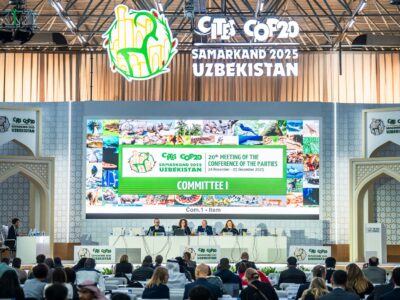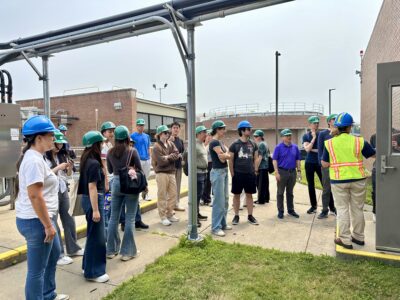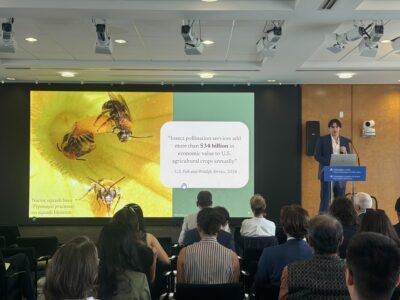
Since graduating from the MPA in Environmental Science and Policy program in 2005, Amy Hill has gained experience working on various projects ranging from recycling initiatives to the built environment both at home and abroad. Amy served as a policy analyst at the United States Environmental Protection Agency – a position that she earned through the Presidential Management Fellows program. She gained international experience in the environmental policy field, working for the environmental department in New South Wales, Australia, where she helped to manage an environmental ratings system for the continent’s buildings and homes. Now, Amy lives in New York City with her family, working as the associate director of research at the Earth Institute.
1. What kinds of work have you done since you graduated from the MPA-ESP program?
After graduation, I joined the Office of Resource Conservation and Recovery (2005-2009) with the United States Environmental Protection Agency in Washington, D.C., where I worked as a policy analyst through the Presidential Management Fellows program. While my primary position at EPA related to developing policies for industrial hazardous waste management and recycling, I was fortunate to have several different roles and projects, including coordinating staff across the country for WasteWise, a voluntary recycling program, and analyzing climate change risk for the ENERGY STAR’s Commercial and Industrial Buildings program as a presidential management fellow.
I also worked for the environmental department in New South Wales, Australia (2010-2011), developing communications to parliamentary officials and managing elements of NABERS (National Australian Built Environment Rating System), a nationwide ratings program for buildings and homes.
Now I’m in New York City again and working for the Earth Institute (since 2011), where I oversee central research support for the many research units and implement activities proposed by the Earth Institute faculty.
2. What aspects of your career have you found most rewarding or challenging, and why?
I thrive on being challenged at work and am motivated by a compelling organizational mission. In particular, I enjoy identifying program components or management structures that would benefit from improvements or efficiencies, and then working through the issues to influence change. That kind of activity is inherently challenging, but it’s very rewarding to accomplish change, especially when the work benefits the overall mission.
3. How did you find your current position? What resources/methods did you find most useful?
I landed at the Earth Institute through networking, which has been very important for me professionally. SIPA and Columbia alumni resources have been helpful over time, too, especially when I was overseas, and for making contacts for informational interviews to learn about different organizations.
For all of the above, I think you get back what you give, so I try to help others as much as I can – whether they are students, alumni or professional contacts.
4. What skills and knowledge from the MPA-ESP program have you found to be most useful in your professional career so far?
Without a doubt, the fast pace of the program and working on intense team projects has helped me to manage and work well on teams, and to prioritize and juggle projects. Another skill that’s been really important is quickly learning enough about a problem, environmental or otherwise, and explaining its importance and need to be addressed in a way that can influence someone. These skills are really transferable and have served me well in different roles.
5. How do you intend to utilize your degree from the MPA-ESP program to further your future career?
I consider the MPA-ESP degree to be first and foremost a management degree, which means it’s very versatile and would allow my career path to change in the future. I’m confident that wherever the future takes me, I will continue to seek challenging projects that increase my knowledge base, benefit my organization, and lead to positive change.
Students in the MPA in Environmental Science and Policy program enroll in a year-long, 54-credit program offered at Columbia University’s School of International and Public Affairs, in partnership with the Earth Institute. Throughout this one-year program, students are immersed in courses that combine Columbia University’s hands-on approach to teaching public policy and administration with pioneering thinking about the environment. During the summer semester, students learn the fundamentals of environmental science, while in the fall and spring semesters, they focus on the policy and economics necessary to becoming successful environmental analysts and managers. Visit our website to learn more about the program.



